by Mike Brunel | Mar 6, 2018 | Negotiation, Strategy
Do you know the difference between a small sale and a large Sale
An excellent book that I have had tucked away in my library is called Spin Selling by Neil Rackman.
In Neil’s book, he maintains that there is a difference between a small sale and a large sale and different philosophies are used for both.
If you are able to know the difference between a large sale and a small sale you might just be able to save a lot of time when you go to prospect.
So what is the difference?
How does that relate to your long-term success?
If you can grasp this idea you will able to avoid all those frustrating “no calls” you keep making and begin to focus on the calls that do matter.
The general rule for small sales is the one from Neil’s book.
He is sitting in an airport waiting for a connecting flight; he was browsing in a store and spotted one of those multipurpose knives, like the Swiss Army knife, the price $15.
Within 2 seconds of seeing it, he bought it and his immediate need was satisfied. To him, it was what I call a no-decision decision.
Now, what about a bigger sale? Let’s take another scenario, you are meeting your client for the first time, potentially that client could invest with you several thousand dollars worth of product or services.
Are you going to get him or her to buy on the first call?
The best way to approach the larger sale is to expect that it may take a little longer. They simply have different needs than smaller sales.
Here a sure fire way to make sure that you do know the difference:
- A larger sale will contain more than one decision maker
- A larger sale involves asking more specific questions about their problems and moving them up to solutions.
- Larger clients tend to take a more rational approach to decision making than a smaller client.
Do this on a regular basis and monitor what are your small sales and your larger sales.
One action you can take straight away is write down all you larger clients based on spend and see if this does stack up against the criteria above.
List all your larger clients in a notebook and begin to ask questions to discover the needs over time.
Have great fun selling your stuff.
Mike

Mike Brunel started mikebrunel.com after being a successful entrepreneur and founder of NRS Media. He co-founded NRS Media in Wellington, New Zealand, expanded it into a global powerhouse in media sales and training, and was eventually responsible for opening offices in London, Atlanta, Toronto, Sydney, Capetown, and Bogota. His products and services are now sold in 23 countries and in 11 languages generating $350 million annually in sales for his clients. Mike sold the company in 2015 and now spends his time following his passions which include rugby, travel. His promise: “I can find thousands of dollars in your business within minutes – GUARANTEED” TRY ME
by Mike Brunel | Jan 15, 2018 | Strategy
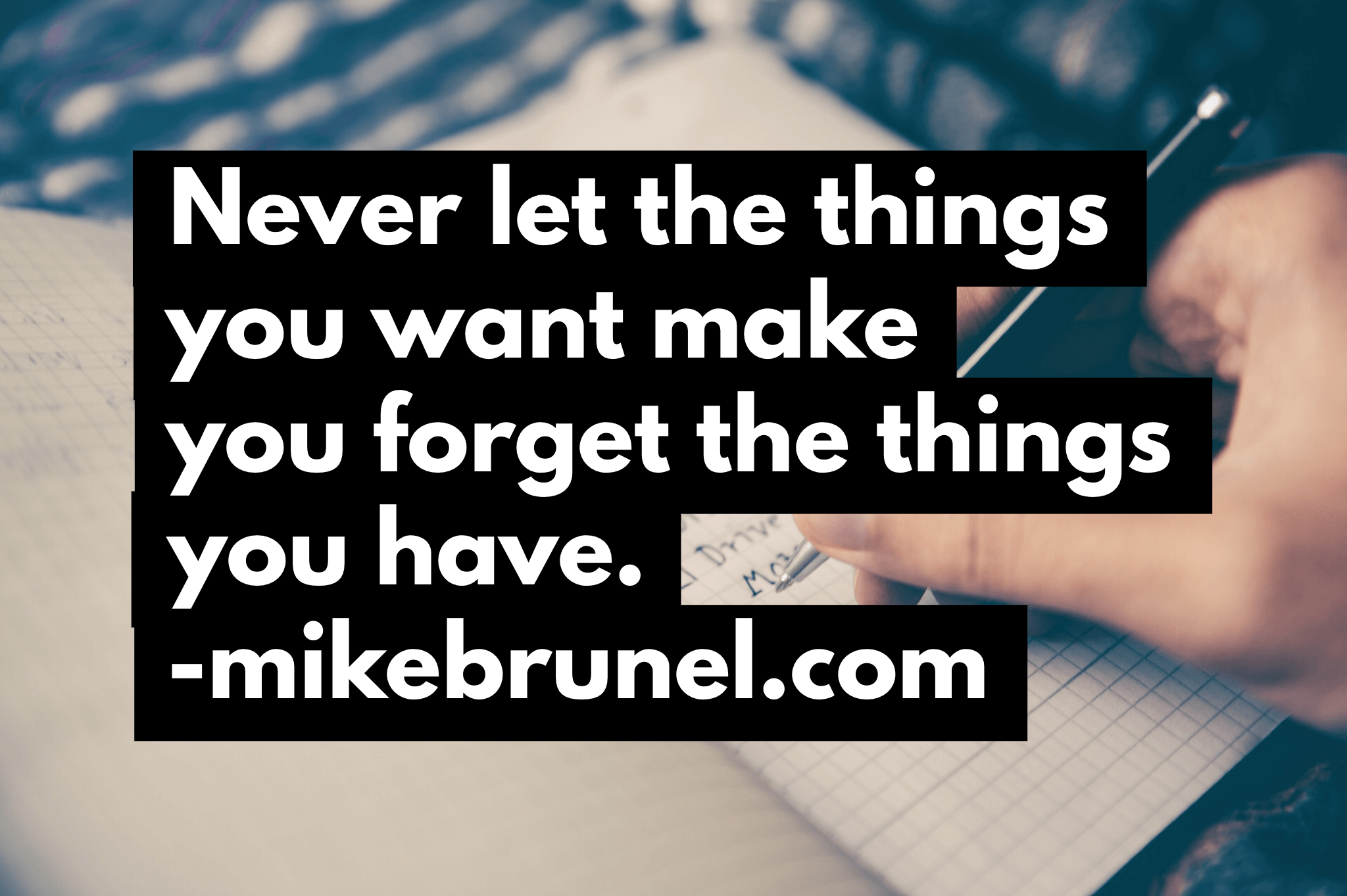 Six Obstacles Preventing You from Achieving Your Goals at Media Sales (Part 2)
Six Obstacles Preventing You from Achieving Your Goals at Media Sales (Part 2)
In my last post, I talked about what I thought might be some of the obstacles that stood in the way of achieving my goals for the past 12 months.
Here they are again.
- The goal might have been too much of a stretch.
- I did not give myself a realistic time to achieve it.
- I did not allocate the right time and resources to make it happen.
- I was not committed emotionally to it.
- I did not WORK AT IT WITH THE SAME PASSION AS THE ONES I DID ACHIEVE.
- I did not monitor it.
By changing my mindset a little this year I do hope to set some big goals using these solutions.
- The goal might have been too much of a stretch – Maybe it’s just working out a way to make it a little simpler. Instead of saying “I’m going to generate 50% more in sales for 2018”, why not say “25% first 6 months, balance for the rest of the year.” It’s perhaps just as simple as chunking it down.
- I did not give myself a realistic time to achieve it – Set up small times frames, I might have expected to achieve it sooner, and when I realized that I did not have a show of getting it, perhaps I should have stopped and evaluated it again.
- I did not allocate the right time and resources to make it happen. Set time aside to work on that specific goal. Even if it is only an hour at a time.
- I was not committed emotionally to it – get involved, if you are not committed then it’s not a goal, it’s a wish.
- I did not WORK AT THE GOAL WITH THE SAME PASSION AS THE ONES I DID ACHIEVE- This is where you chunk it down if your goal is to have 5 new clients a month and you are finding that challenging then scope it back to 2.
- I did not monitor it- Keep a journal. I got a great tip from an article I read on running up a journal of what you do each week. Just a summary. I use these headings –What I am grateful for- What opportunities I see- What I did- What I will do that week.
In my next article, I am going to talk about my one hour a day idea.
Until then
Have fun selling your stuff in 2018.
Mike
 Mike Brunel started mikebrunel.com after being a successful entrepreneur and founder of NRS Media. He co-founded NRS Media in Wellington, New Zealand, expanded it into a global powerhouse in media sales and training, and was eventually responsible for opening offices in London, Atlanta, Toronto, Sydney, Capetown, and Bogota. His products and services are now sold in 23 countries and in 11 languages generating $350 million annually in sales for his clients. Mike sold the company in 2015 and now spends his time following his passions which include rugby, travel. His promise: “I can find thousands of dollars in your business within minutes – GUARANTEED” TRY ME OUT!
Mike Brunel started mikebrunel.com after being a successful entrepreneur and founder of NRS Media. He co-founded NRS Media in Wellington, New Zealand, expanded it into a global powerhouse in media sales and training, and was eventually responsible for opening offices in London, Atlanta, Toronto, Sydney, Capetown, and Bogota. His products and services are now sold in 23 countries and in 11 languages generating $350 million annually in sales for his clients. Mike sold the company in 2015 and now spends his time following his passions which include rugby, travel. His promise: “I can find thousands of dollars in your business within minutes – GUARANTEED” TRY ME OUT!
by Mike Brunel | Jan 11, 2018 | Strategy
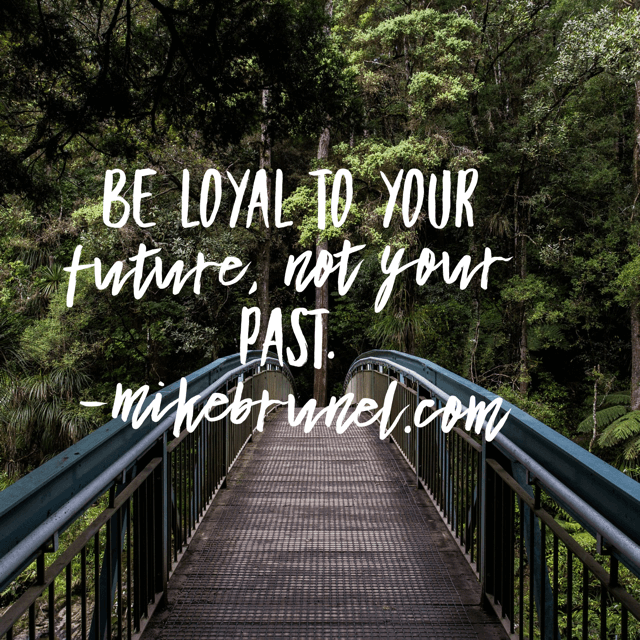
Six Obstacles Preventing You from Achieving Your Goals in 2018
As the year begins I want to talk about the “thing” that gets in the way of you achieving your goals.
Over the holiday break for me, it’s a great time to reflect on my past achievements for the year and look towards the next 12 months.
Once I go through the goals I have achieved and assessed where my success came from, I go about setting new goals for the coming year.
I make sure that I pat myself on the back and congratulate myself for the goals I have achieved.
Whenever I do this the question always comes up “How come I achieved some goals, while others were not achieved?”
They were all important to me or I would not have written them down in the first place.
No matter how much I tried to reach those goals for some reason they eluded me.
What did I learn?
- The goal might have been too much of a stretch.
- I did not give myself a realistic time to achieve it.
- I did not allocate the right time and resources to make it happen.
- I was not committed emotionally to it.
- I did not WORK AT IT WITH THE SAME PASSION AS THE ONES I DID ACHIEVE.
- I did not monitor it.
In my next article, I hope to give you some of the solutions to help overcome these obstacles to get you off to a good start in 2018
Until then
Have fun selling your stuff in 2018.

Mike Brunel started mikebrunel.com after being a successful entrepreneur and founder of NRS Media. He co-founded NRS Media in Wellington, New Zealand, expanded it into a global powerhouse in media sales and training, and was eventually responsible for opening offices in London, Atlanta, Toronto, Sydney, Capetown, and Bogota. His products and services are now sold in 23 countries and in 11 languages generating $350 million annually in sales for his clients. Mike sold the company in 2015 and now spends his time following his passions which include rugby, travel. His promise: “I can find thousands of dollars in your business within minutes – GUARANTEED” TRY ME OUT!
by Mike Brunel | Dec 8, 2017 | Strategy
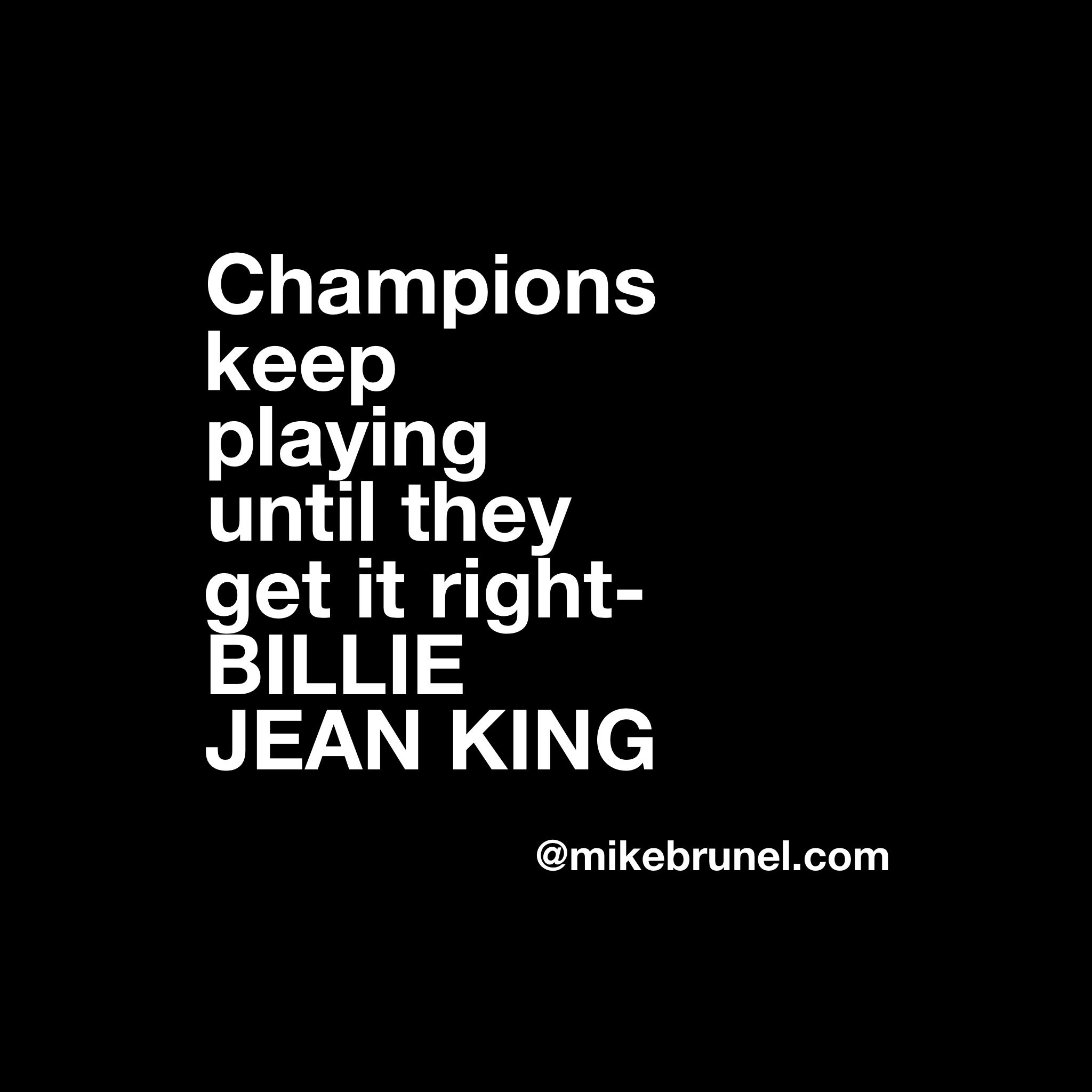
In our blog last week we talked about keeping the client talking, and asking questions that opened up a conversation.
Are you Asking Open-Ended Questions?
One way to do this is to ask open-ended questions. What are open-ended questions?
Definition: Open-ended questions are ones that require more than one-word answers. The answers could come in the form of a list, a few sentences, a clarification, or more information about a need.
Asking questions that require more than a Yes or No Answer.Here are some examples of open-ended questions: Ask these this way and see what happens.
Q: What do you expect from your salesperson?
Q: When they answer, ask them to be more specific. Q: Or ask this question.
Q: If you could describe what you wanted, how would you do that?
Q: How did you go about purchasing your last product like this one?
Q: What is the matter with the current product you have?
Q: Are you able to tell me what you are specifically looking for?
Q: Do you like red, pink, or blue in that product?
Q: Would you like it delivered to you on Monday or Thursday?
Q: Why do you like that pink colour?
Every question here requires more than a No or a Yes. This is why open-ended questions require lengthier responses than close-ended questions. They also allow you to move away from a simple price negotiation.
If you can train yourself to ask more questions, and your client is talking it gives you time to look for clues. Clues are problems, problems require a solution.
Next week we look at some great advice on practice.
Have a great week selling your stuff.
Mike

Mike Brunel started mikebrunel.com after being a successful entrepreneur and founder of NRS Media. He co-founded NRS Media in Wellington, New Zealand, expanded it into a global powerhouse in media sales and training, and was eventually responsible for opening offices in London, Atlanta, Toronto, Sydney, Capetown, and Bogota. His products and services are now sold in 23 countries and in 11 languages generating $350 million annually in sales for his clients. Mike sold the company in 2015 and now spends his time following his passions which include rugby, travel. His promise: “I can find thousands of dollars in your business within minutes – GUARANTEED” TRY ME OUT!
by Mike Brunel | Nov 29, 2017 | Strategy, Uncategorized
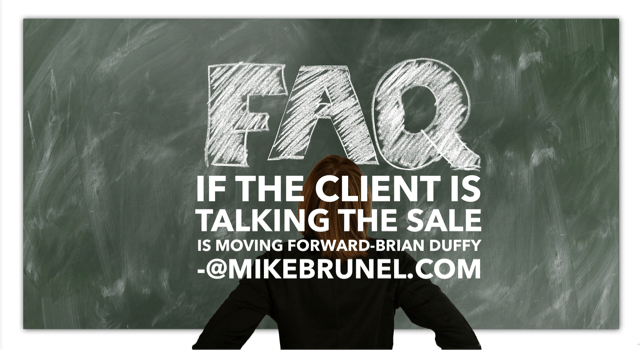
Keep your clients talking
The Right Questions
Over the last two weeks, the theme of my blogs has been questions. The ones we ask ourselves and the one we ask others.
Many people struggle with sales because they think selling means using the tricks and techniques that slick salespeople use.
Until we figure out what the client is thinking, however, we make little progress.
This was certainly true in my business. Once we stopped selling our stuff up front, things got a lot easier. We had to work hard on constructing the right questions to ask, but after that, the process flowed.
Keep ’Em Talking
If you want to have a discussion with someone about a service that you offer or a product you sell, isn’t it better to ask questions that keep the exchange flowing? Wouldn’t you agree?
Questions change the progression of a sale. They move it forward to a conclusion. One of my mentors, Brian Duffy, used to drum it into me over and over again. “If the client is talking, the sale is moving forward,” he’d say. “If you don’t shut up, it isn’t!”
How do you ask the right questions?
In my book, I explain the difference between what I call “Can I help you” questions and “Open them up for a discussion” questions. Some people refer to them as closed-ended and open-ended questions. By analysing the distinction, you will see why you might be losing clients.
“Can I Help You” or Closed-Ended Questions
Definition: If you can answer a question with only a “yes” or “no” response, then you are answering a close-ended type of
question. Examples of close-ended questions are:
• Can I help you?
• Is that your final answer?
• Should I call her and sort things out?
• Can I help you with that?
• Would you like to go to the movies tonight?
• Is science your favourite subject?
• Are you interested?
• Are you happy with your purchase options?
• Are you just looking?
• Hi.
• Just let me know if you need anything.
Unfortunately, these questions often shut down the conversation. There are exceptions, but in general, closed-ended questions don’t allow you to uncover your customer’s concerns.
In my next blog I will talk about Open-ended questions, these are designed to open up the conversation. and allow you to find out your clients problems much faster.
 Mike Brunel started mikebrunel.com after being a successful entrepreneur and founder of NRS Media. He co-founded NRS Media in Wellington, New Zealand, expanded it into a global powerhouse in media sales and training, and was eventually responsible for opening offices in London, Atlanta, Toronto, Sydney, Capetown, and Bogota. His products and services are now sold in 23 countries and in 11 languages generating $350 million annually in sales for his clients. Mike sold the company in 2015 and now spends his time following his passions which include rugby, travel. His promise: “I can find thousands of dollars in your business within minutes – GUARANTEED” TRY ME OUT!
Mike Brunel started mikebrunel.com after being a successful entrepreneur and founder of NRS Media. He co-founded NRS Media in Wellington, New Zealand, expanded it into a global powerhouse in media sales and training, and was eventually responsible for opening offices in London, Atlanta, Toronto, Sydney, Capetown, and Bogota. His products and services are now sold in 23 countries and in 11 languages generating $350 million annually in sales for his clients. Mike sold the company in 2015 and now spends his time following his passions which include rugby, travel. His promise: “I can find thousands of dollars in your business within minutes – GUARANTEED” TRY ME OUT!
by Mike Brunel | Nov 13, 2017 | Sales, Strategy
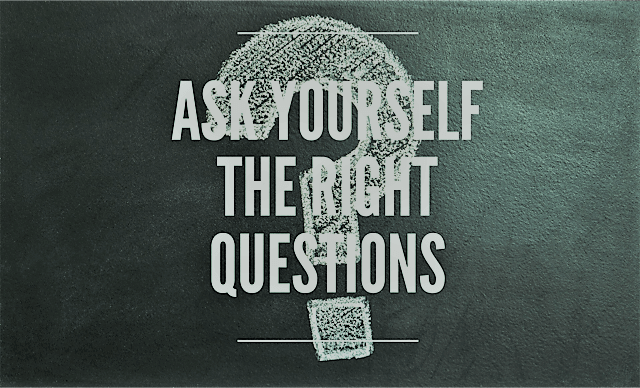
Ask yourself these Powerful Questions.
Last week I talked about the importance of asking yourself powerful questions when it comes to conditioning your mindset.
To finish off that discussion here are some business questions you might want to think about as you move into another week of selling.
• What am I most happy/excited about in my business?
• What am I most proud of in my business?
• How does it make me feel to employ other people?
• What am I committed to doing to improve sales
systems?
• How/why do I value my customers?
Set up Systems
With all of these questions, you are asking yourself about your business is it not the time to set up systems to routinize these questions for your sales team so their conversations with customers flow more naturally? Efficiency is especially important with today’s shorter buying cycles and your clients are considering several competitive offers at any one time; there is little time to waste.
What does a quality question look like in practice? A quality question is one that cannot be answered with a simple “No.” Can I help you is the wrong question, because “No, just looking” is not the answer you want? Where can you go from there? Nowhere.
The phrase that you thought was helpful has just shut down the conversation you were hoping to have with a potential client. Is it hard to come back from a dead end? You bet.
The Other Guy’s Shoes
How do you get your sales team to open up the conversation? Get them to think about the customer’s experience. Many salespeople are concerned about coming across as nosy. In reality, there are few topics that are truly off-limits. Obviously, you wouldn’t ask anything too personal, but if you genuinely indicate your desire to help, people are quite willing to talk about themselves.
Keep in mind that the customer’s most urgent need at the moment he or she walks in your door may not be to buy your
product.
It may be something much more basic, like a need to be understood. Before they buy anything, they may want to know that you appreciate them.
The importance of considering the customer’s current circumstances is succinctly told in a famous sales story, called The Man in the Desert.* It goes like this: A man comes into a store after living in the desert for months. The store sells best quality food and clothing, but those are not the first things the customer needs.
What he needs is water. The best conversation starter for this man is a glass of water. Maybe after his thirst is quenched, you will learn that he also needs lunch or a new jacket. He might need other things to help him feel better.
If you sell those things, you are in business. You have opened a dialogue that would never have taken place if you had not recognised the customer’s most basic need.
So many people stop at the glass of water. You almost always have to ask more than one question to find out what the client wants. If that person says, “I’m just looking,” you can respect that, but you know they must have come in for a reason. Have the courage to ask another question.
For example, if someone is looking at a product, ask them what they like about it. Get them talking. The only questions that don’t work are questions that close the conversation.
Of course, for a salesperson to be willing to let the conversation wander, he or she must be prepared with the things we talked about earlier, including sufficient knowledge of the product to confidently answer any questions that come back from the customer.
If you know your product well enough, the answers come intuitively, which makes a sales interaction feel more like a friendly chat.
Have a good week selling your stuff.
Mike
PS. Have you tried the 7 Day Challenge yet? It’s easy and it is FREE.
ABOUT THE AUTHOR.
 Mike Brunel started Mikebrunel.com after being a successful entrepreneur and founder of NRS Media. He co-founded NRS Media in Wellington, New Zealand, expanded it into a global powerhouse in media sales and training, and was eventually responsible for opening offices in London, Atlanta, Toronto, Sydney, Capetown, and Bogota. His products and services are now sold in 23 countries and in 11 languages generating $250 million annually in sales for his clients. Mike sold the company in 2015 and now spends his time following his passions which include rugby, travel. His promise: “I can find thousands of dollars in your business within minutes – GUARANTEED” TRY ME OUT!
Mike Brunel started Mikebrunel.com after being a successful entrepreneur and founder of NRS Media. He co-founded NRS Media in Wellington, New Zealand, expanded it into a global powerhouse in media sales and training, and was eventually responsible for opening offices in London, Atlanta, Toronto, Sydney, Capetown, and Bogota. His products and services are now sold in 23 countries and in 11 languages generating $250 million annually in sales for his clients. Mike sold the company in 2015 and now spends his time following his passions which include rugby, travel. His promise: “I can find thousands of dollars in your business within minutes – GUARANTEED” TRY ME OUT!
*KipTindall. The Container Store.


 Six Obstacles Preventing You from Achieving Your Goals at Media Sales (Part 2)
Six Obstacles Preventing You from Achieving Your Goals at Media Sales (Part 2)


